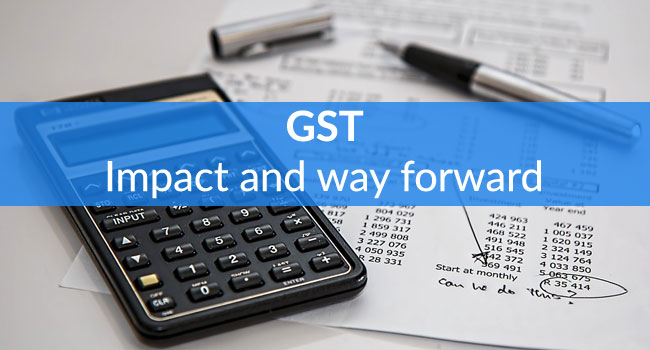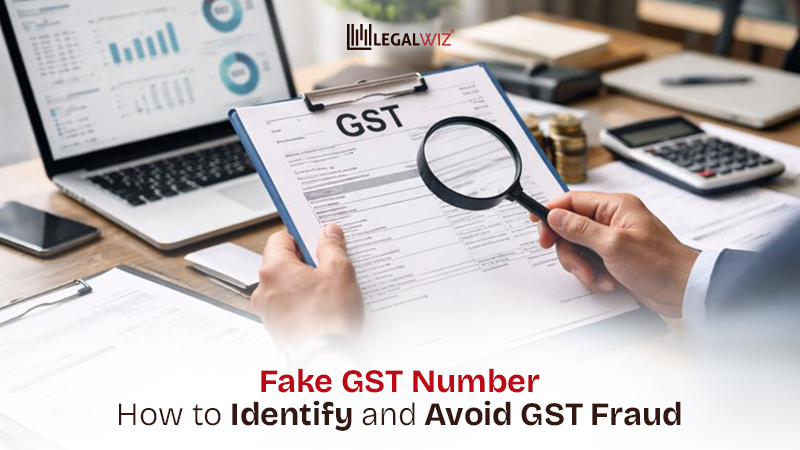A study on the recent GST amendments and its impact on the Indian Economy
OVERVIEW
When GST was first introduced on June 30, 2017, it was adopted for streamlining the indirect tax structure, its rates, administration, and compliance requirements. It enclosed all the multiple taxes and Cess levied by the state and central government under the umbrella of one single tax structure by introducing GST registration process in place for establishments in India. The government decided to have a multilayer structure dividing the tax rate in brackets of 0%, 5%, 12%, 18% and 28%, to prevent the cascading effect that the previous tax structure has created.
After the completion of one year, once the GST laws and rules got successfully implemented throughout the country, the GST council gradually started making new and appropriate changes in the GST regime, where some major reductions were made in the old tax rates. This article aims to update the reader about all the major changes and its impact on various sectors.
-
Reduction in compliances :
The GST council recently held a meeting in which they adopted a people pleasing agenda. The compliances are now reduced which would indirectly help in lessening the rush on the IT systems and prevent them from crashing, hence increasing the efficiency.
-
Simplified return filing process :
The GST Return Filing process was further simplified, quarterly return filing was hiked from the earlier limit of 1.5 crore turnover to 5 crore.
-
No extra charge on amended return:
Amendments on return can be filed through a return called amendment return on which no extra interest would be charged. This reduces the burden of interest liability on the tax payer.
-
GST exemption threshold increased:
The threshold for GST exemption increased to 20 lakhs from 10 lakhs for 6 states. Taxpayers operating from Sikkim, Arunachal Pradesh, Himachal Pradesh, Uttarakhand, Assam & Meghalaya will avail this benefit.
-
Multiple businesses registrations permitted within the same state:
Now multiple businesses can be registered by an individual within a state/ union territory.
-
Establishment of GST appellate tribunal:
GST Appellate Tribunals are to be established throughout the country with its national bench to be set up in New Delhi. This would reduce the burden on the judiciary, and the cases and issues related to GST would be dealt by the tribunal.
-
Adoption of RFDI tags :
The efficient new system of E-way bills and adoption of the RFDI tags would save time and exempt the transporters from waiting at every check post.
-
Relief on GST in many categories:
Multiple reliefs from GST taxation have been provided to the following categories of
Services like:
(i) Agriculture, farming and food processing industry
(ii) Education, training and skill development
(iii) Pension, social security and old age support
-
Relief given to the Hotel Industry:
Hotel industry is given a major relief by basing the tax on accommodation and services on transaction value instead of the declared tariff. This is considered as a very thoughtful change since hotels usually charge less than the original declared tariff by giving discounts or offers.
-
Rationalization of rates :
The main goods for which the rates are rationalized have made consumers satisfied and happy. Exempting sanitary napkins from GST was one of the major steps, as many campaigns and discussions were widely spread and initiated by people all over the country. Women of the country are very much pleased with this step.
-
Tax reduction on ethanol and lithium-ion batteries:
The changes in the rates of ethanol and lithium-ion batteries are another major step which a far-sighted move by the GST council. All the industries in which ethanol is used are going to benefit from the tax reduction. The new slab of 5% that was dropped from 18% benefits everyone – from the sugarcane farmers to process of blending petrol. The reduction of tax on lithium-ion batteries from 28% to 18% could probably spur growth in the electronic manufacturing sector and make them more accessible to consumers.
-
Allowance for filing return on accumulated ITC :
GST council also declared that it would allow return of accumulated Input Tax Credit (ITC) on fabrics, aimed to reduce fabric prices by 3-4% and ultimately help consumers with a healthy competition in the textile market.
-
Promotion of e-books through tax reduction :
GST council as a green initiative has reduced the tax levied on supply of e-books from 18% to 5%.
-
Adhering to grievances of exporters and small businesses:
Exporters and small businesses who voiced their grievance regarding the issues they were facing have now been pleasantly surprised by the changes made by the GST council that has started taking serious steps in expediting the process, giving refund on the return filed for the previous year and the introduction of e-wallet. All these are aimed at solving the liquidity concern in the export sector.
-
Postponing the implementation of Reverse charge mechanism:
Until September 30, 2019, GST won’t be levied on registered persons who receive supplies from unregistered suppliers. And the council would gauge the impact and come up with a proper structure on implementing reverse charge mechanism within the specified time.
Conclusion:
In a nut-shell, these were the major changes introduced by the GST council. GST faced major criticism from the citizens when it was first introduced due to the strict structure and the situation of unrest it brought into the taxation system. There was a lot of confusion and doubt regarding the fact if; GST would benefit the common public and the Indian economy as whole and if it does how it would do so. A lot of changes and clarifications are made since its implementation and still the laws and systems are in the process of being improved. However, the GST regime in India is still at a very vulnerable and initial stage. And to achieve the desired goal, a lot more needs to be done in many areas which still lack the GST council’s attention like the real estate sector. The property prices are still inflated, and many pitfalls and loopholes still exist in this sector.
Yet, looking at the recent changes, one can hope that GST would prove to be a boon for the growth and development in the long-term for the Indian economy. Running a business would be much easier because of the streamlined tax structure would invariably increase the growth of companies and the Indian economy. Simplifications made by the GST council would encourage fast adoption and easy access of GST amongst the trading community and will clear the air of uncertainty and chaos with time.
About LegalWiz.in:
LegalWiz.in is a premier online service provide that serve the consumers at PAN India level with the aim to provide simple, transparent and affordable services. A qualified team of experienced professionals – CA, CS and Lawyers assist the business from business set-up, registrations and its protections.
If you are looking forward to business set-up or business registrations including GST registrations, our team of experts is reachable at support@legalwiz.in.

Kahini Jhaveri
Kahini Jhaveri is an IP specialist at LegalWiz.in, with a keen interest in content creation. She holds a B.A. LLB honours from Institute of Law, Nirma University, Ahmedabad. Kahini specializes in Intellectual Properties, specifically Trademark Law.







